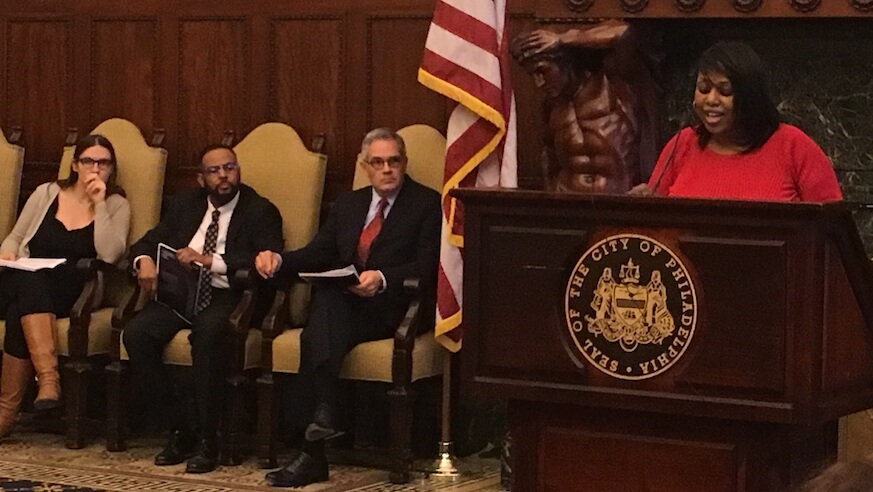One year in, one of Philadelphia DA Larry Krasner’s most significant reforms — ordering prosecutors to stop seeking cash bail for low-level offenses — appears to be a success, based on an independent academic evaluation, Krasner announced alongside Mayor Jim Kenney on Tuesday.
“We do not, we should not imprison people for poverty,” said Krasner, who previously slammed the cash bail system for locking up mostly low-income people of color pretrial, while they are still technically presumed innocent, for sometimes months or even years.
Krasner touted research by professors at UPenn and George Mason universities which found that under the new policy, while more defendants were released without cash bail hanging over their heads, they still came to court for their hearings – and were not more likely to re-offend while their charges were pending.
That flies in the face of criticisms that the policy would be “endangering the public,” Krasner said.
“We were being told, No. 1: ‘This is gonna have the city on fire, it’s gonna be a zombie invasion, you’re gonna let these people out, oh my goodness, they’re gonna run in the front door and take your loved ones out the back.’ No, that didn’t happen,” Krasner said at a press conference Tuesday at City Hall. “And the second thing, was: ‘Oh, my God, if you don’t make them pay $250, why would they ever go to court?’ No, that didn’t happen.”
As of Feb. 21, 2018, Krasner’s office stopped asking for bail in cases based on 25 charges — which constituted 61 percent of all cases filed in Philadelphia — and where bail was set typically below $1,000, for crimes such as retail theft, DUI, prostitution and resisting arrest.
The result? There was “no detectable effect” on rates of failures to appear or re-offending for defendants released without bail in the past year, according to “Prosecutor-Led Bail Reform: Year One,” a recently published study by UPenn criminology professor Aurelie Ouss and George Mason University law professor Megan Stevenson based on stats from the First Judicial District of Pennsylvania.
The researchers studied the 1,750 defendants released without bail in 2018. They found a 23 percent increase in the number of eligible defendants “Released on Recognizance” and ordered to return to court without bail; a 41 percent decline in bail set at amounts of $5,000 or less, and a five percent decrease in overnight stays in jail for eligible defendants.
Questioned about the fact that homicides also increased in 2018, Krasner denied any linkage, instead citing the opioid epidemic as driving more violence in Philly. (In 2017, 60 homicides were listed by police as being drug-related; in 2018, that number rose to 121, Krasner noted.)
“We forget the human cost of what bad systems do to people,” said City Councilman Curtis Jones Jr., who said he visited a city jail and met inmates who were jailed because they couldn’t afford to pay just $100 of bail. “You get arrested. You lose your job. You lose a home. You lose a wife. You lose hope, and then you become caught in the system. That’s what cash bail can do.”
Mayor Jim Kenney also praised Krasner’s efforts, saying they dovetail with the city’s ongoing collaborative efforts, funded by a MacArthur Foundation grant to reduce its jail population by 50 percent from 2015 to 2020. So far, they’ve achieved a 43 percent drop.
Ultimately, the decision of what bail to set is in the hands of Philly’s bail commissioners, but Krasner said he hopes they’ll be swayed by the evidence of the past year and the new study.
“When you don’t tear apart peoples’ lives, when you keep them in contact with things that keep them on course, they are less likely to commit crimes in the future.”




























